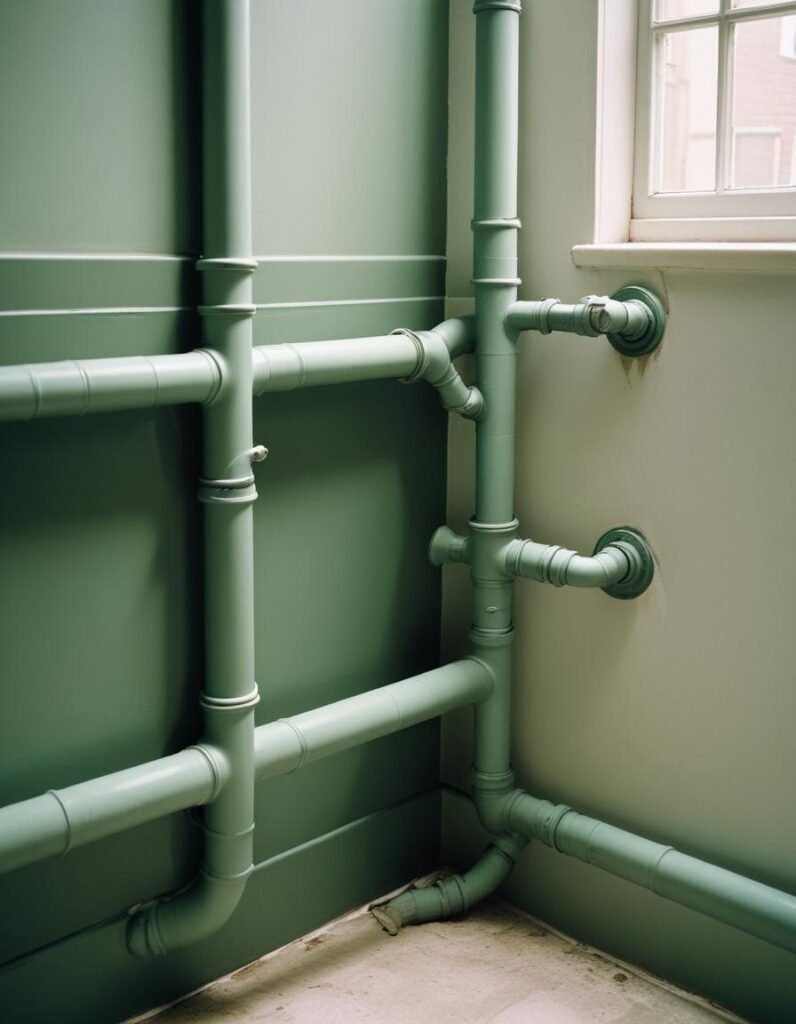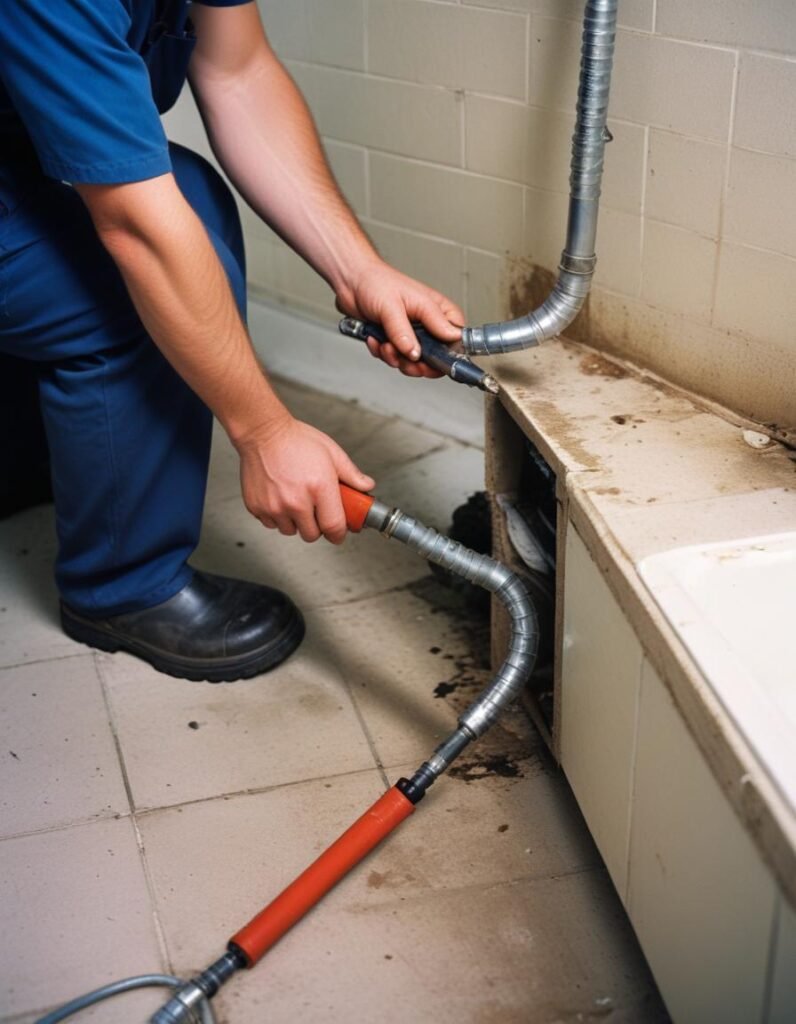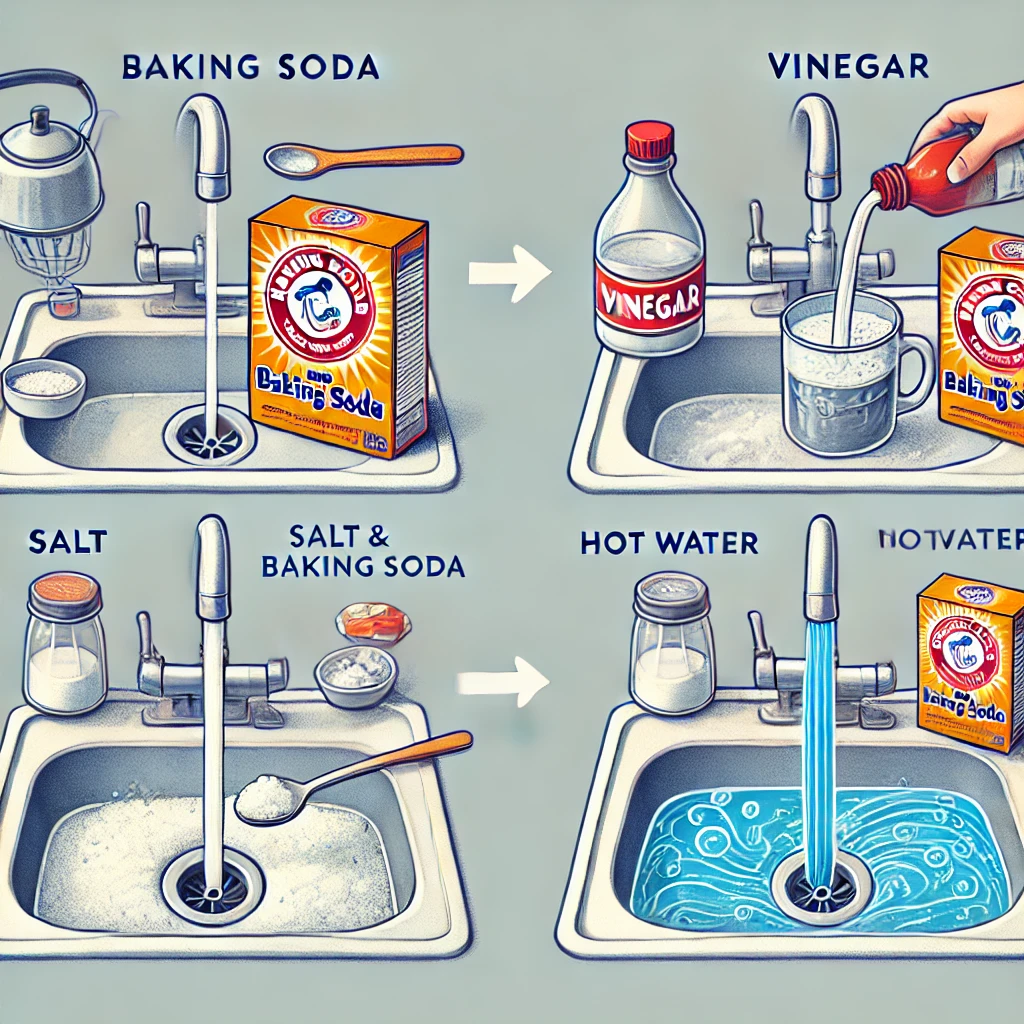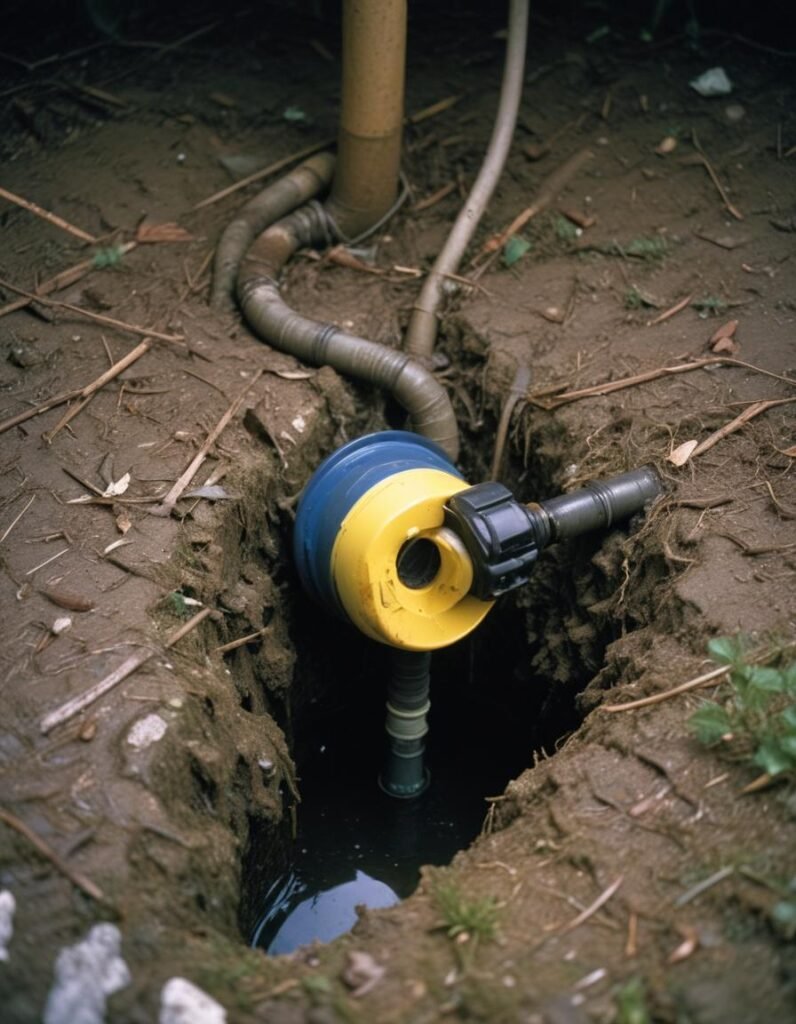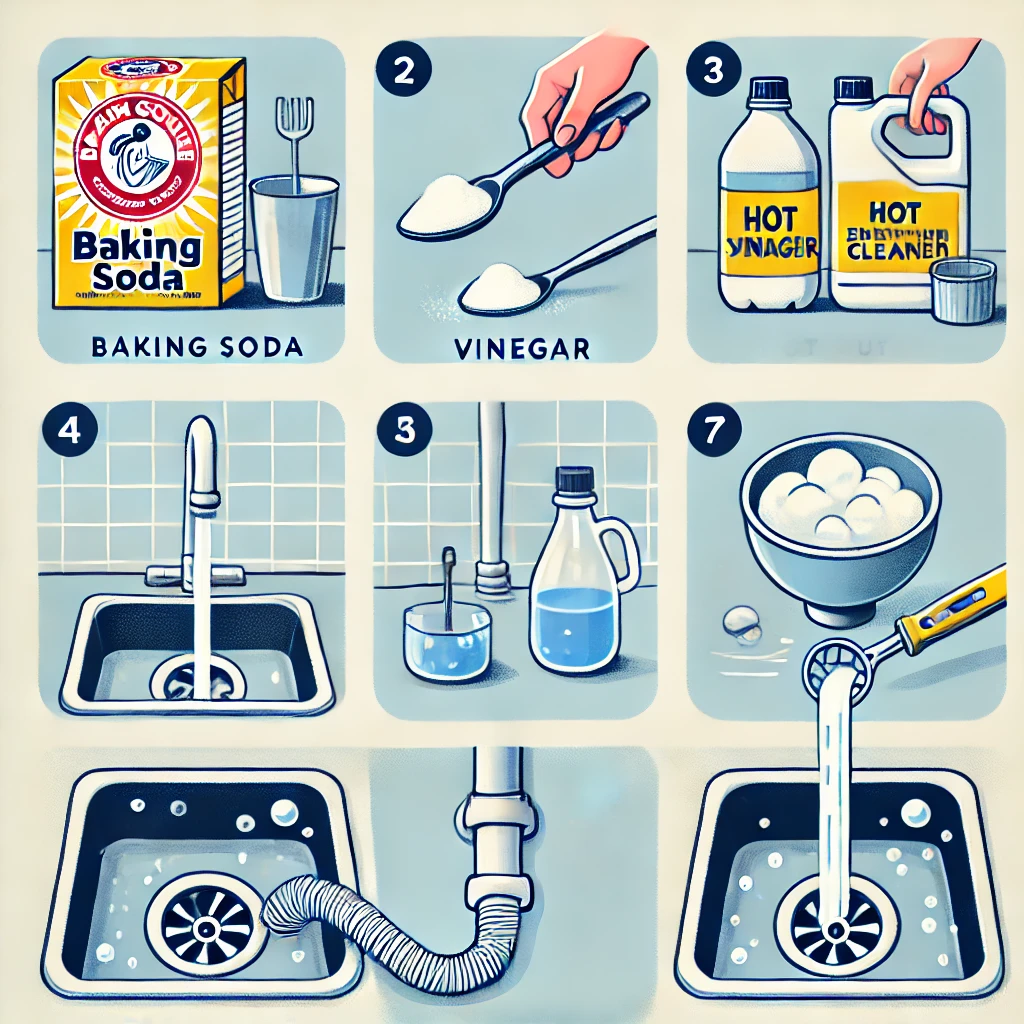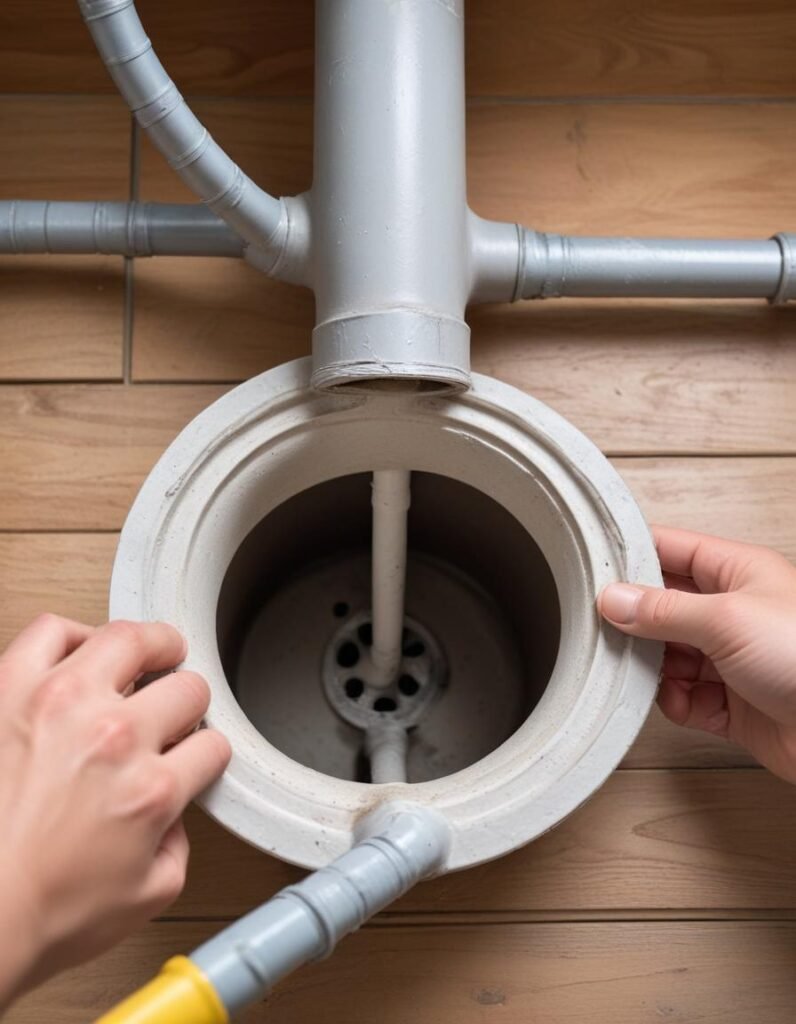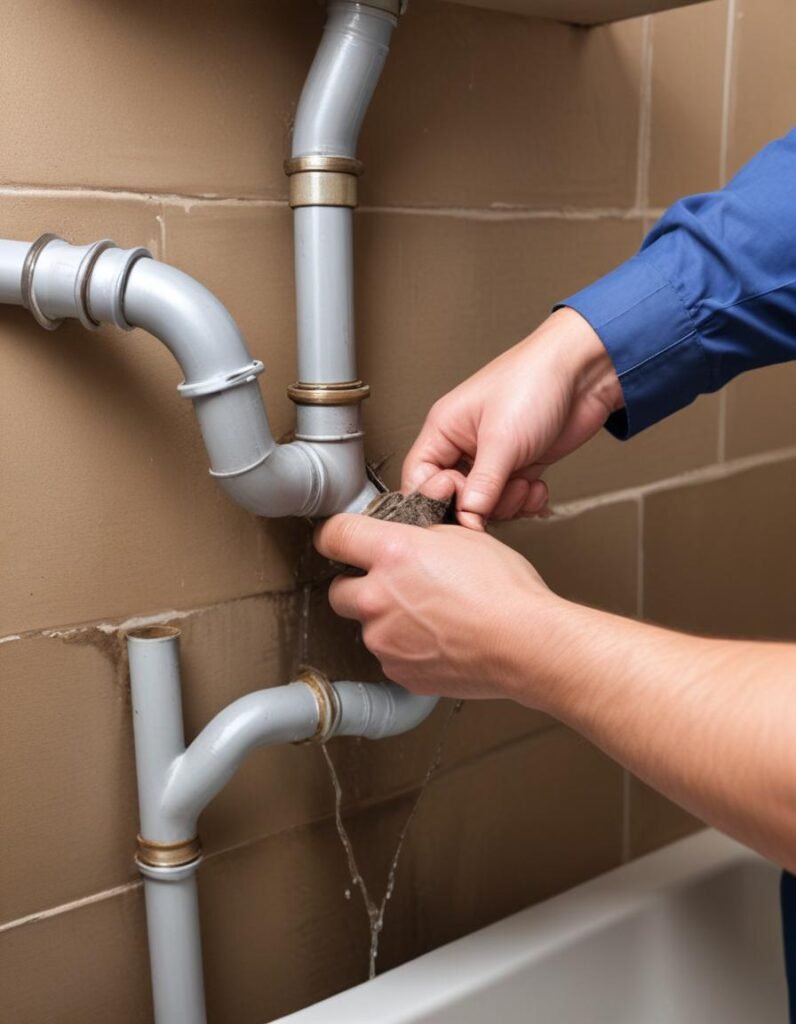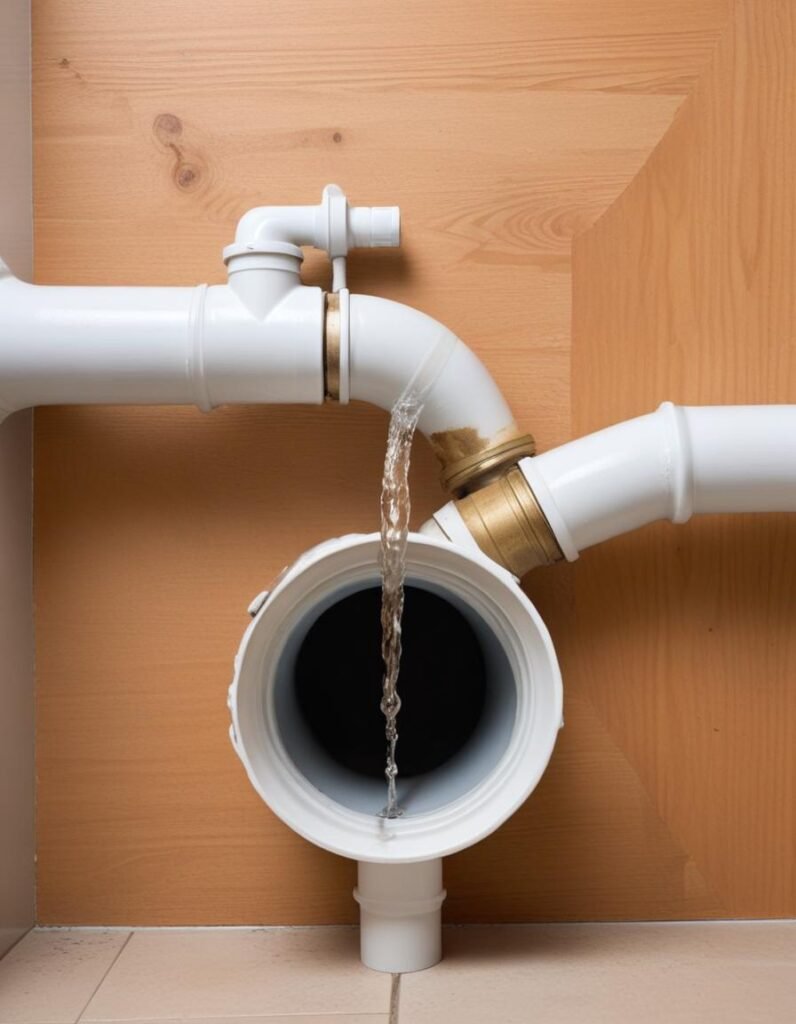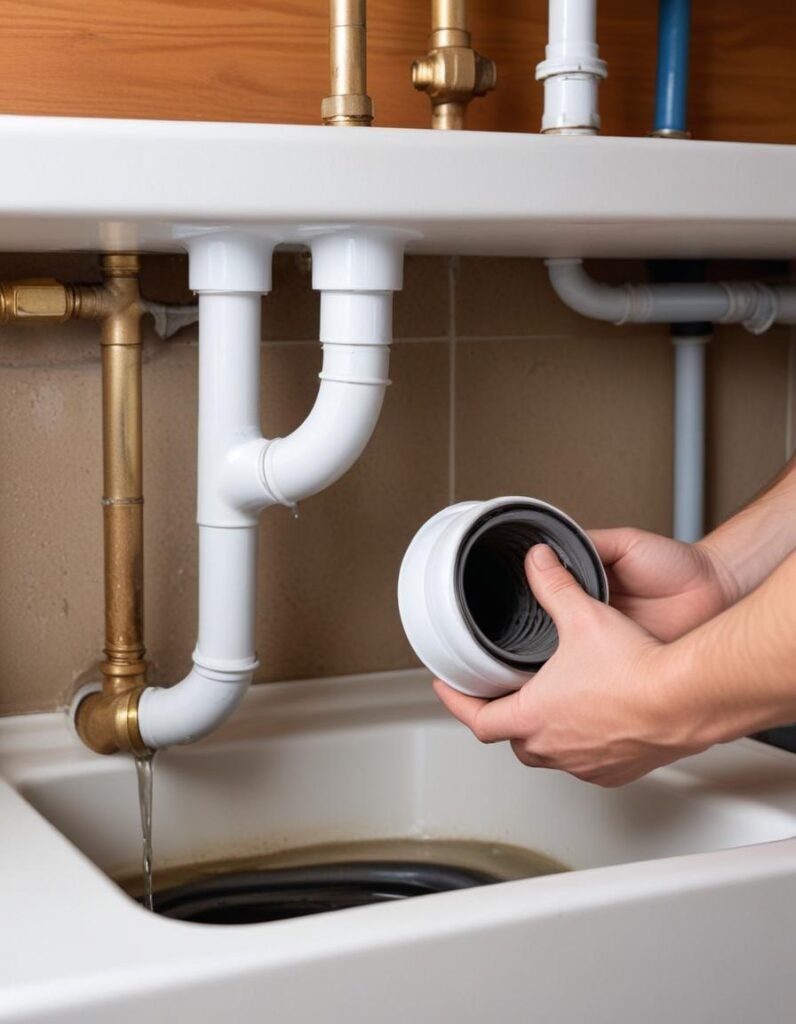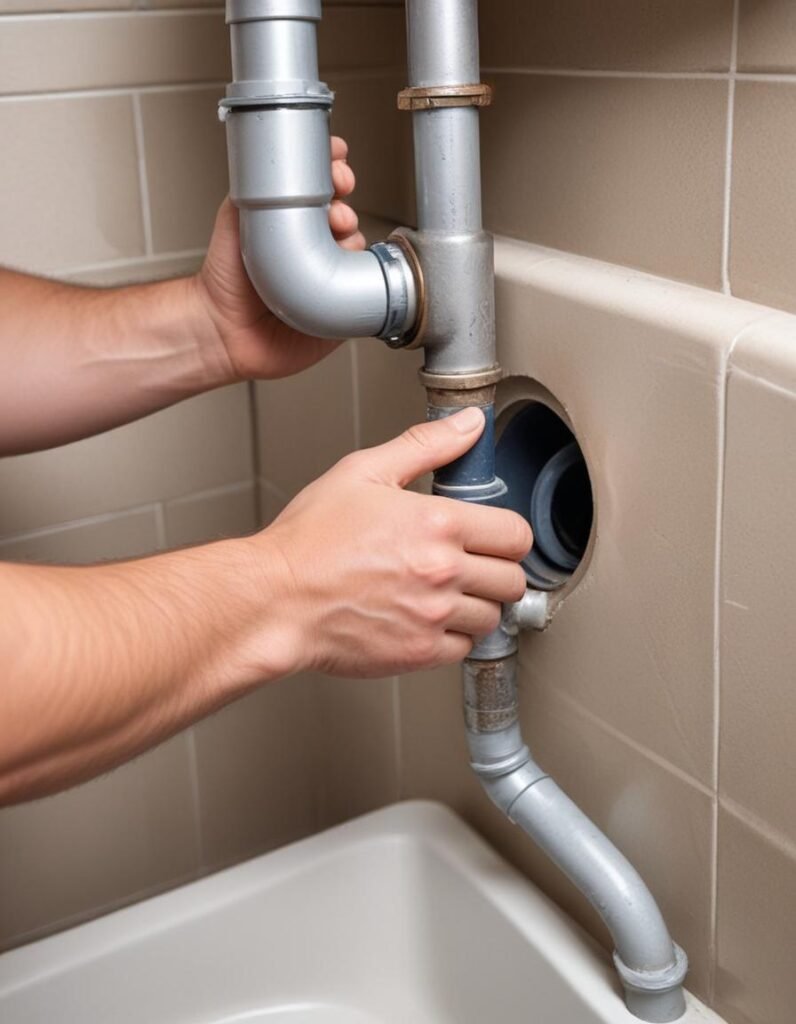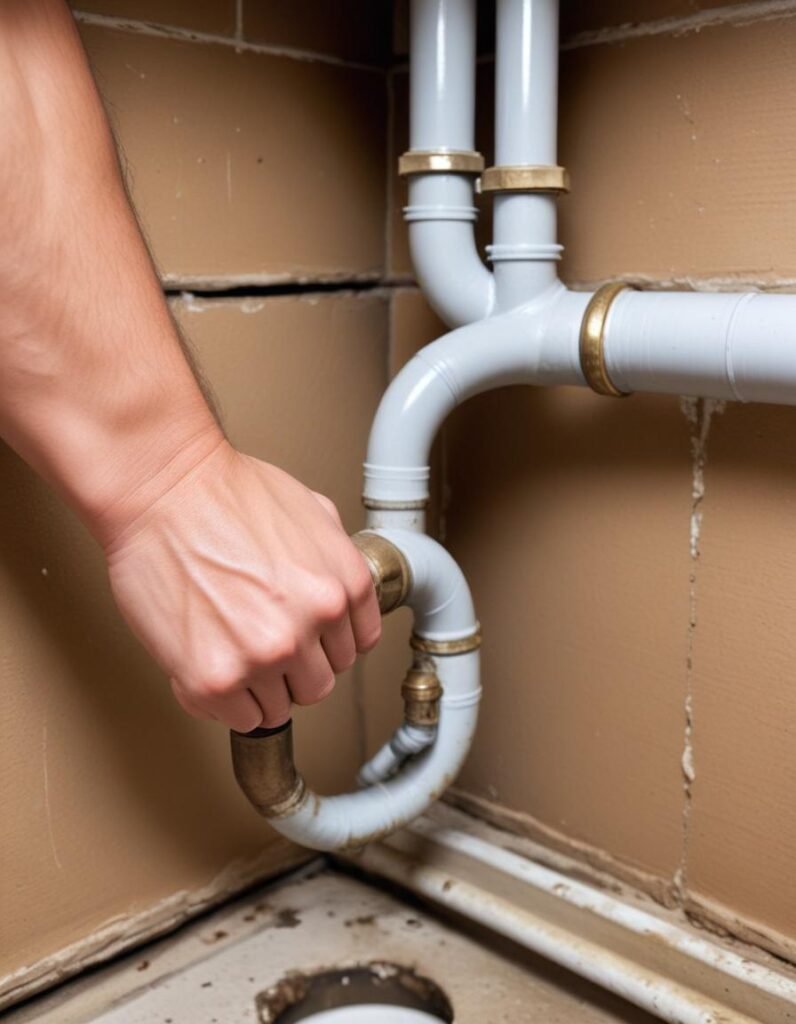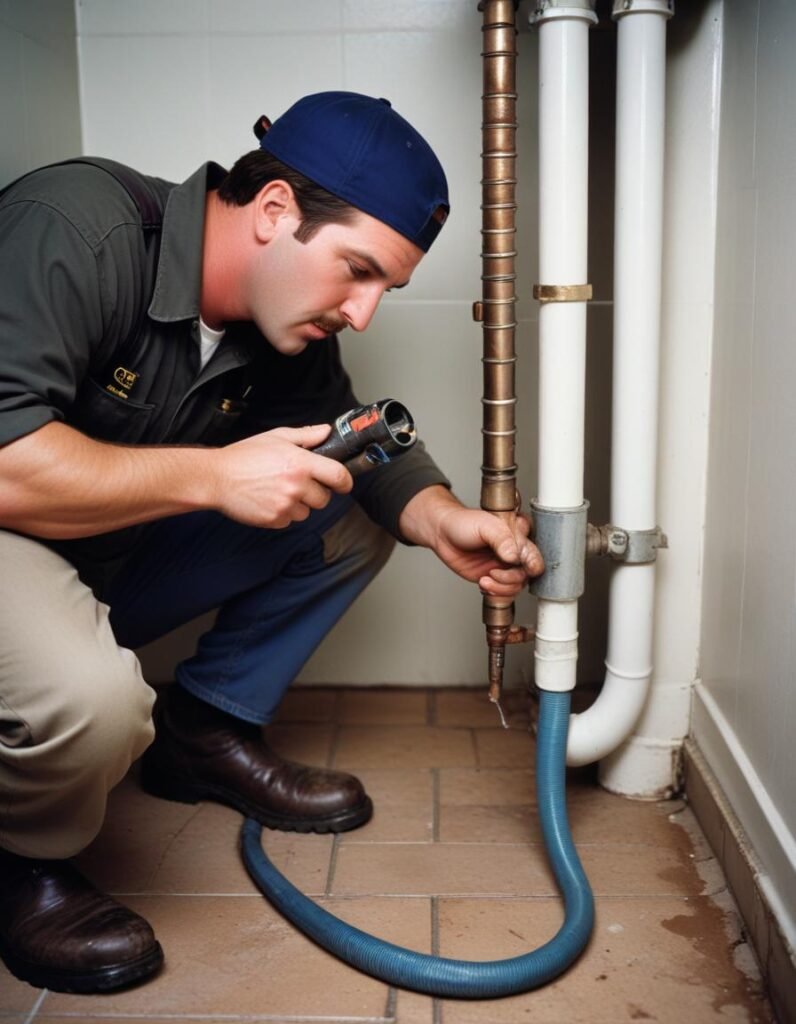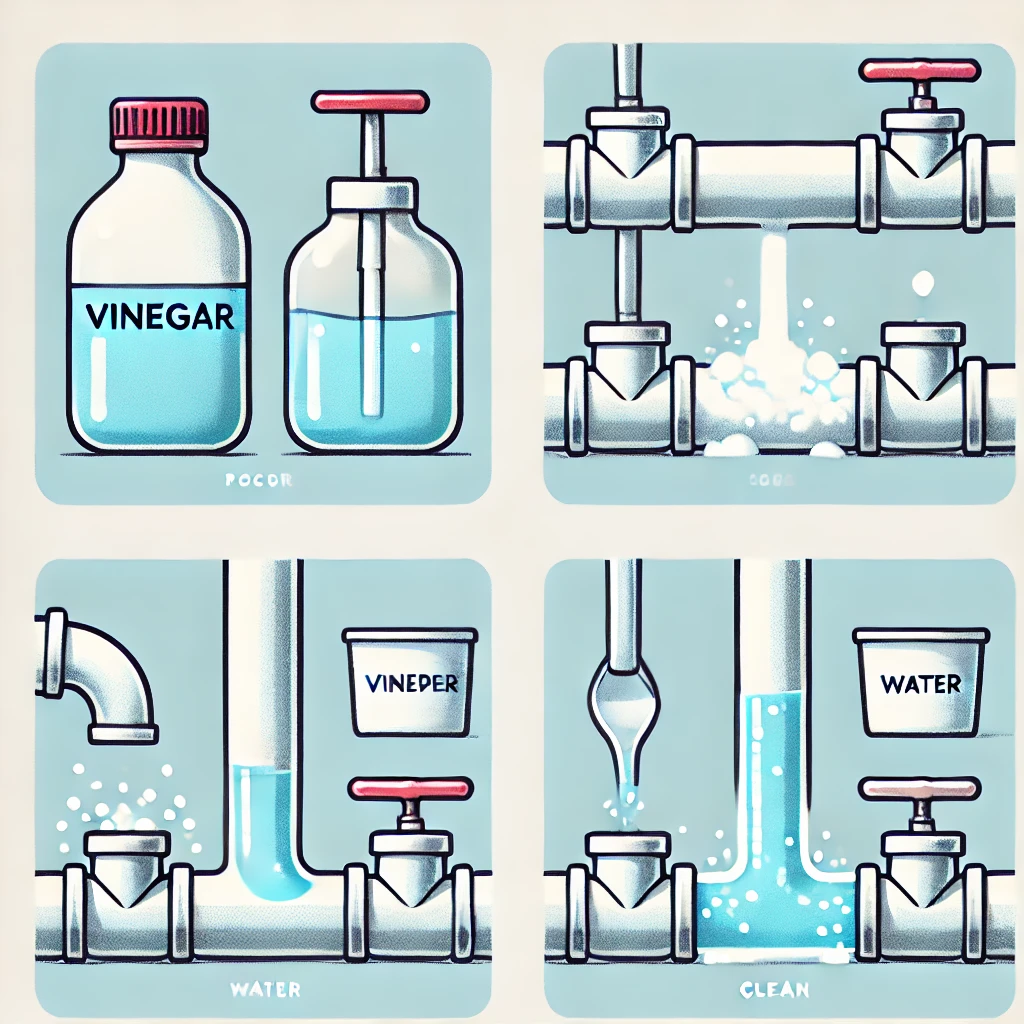How to Clean Drain Pipe: The Ultimate Way

Maintaining your drain pipes can be important to having a healthy home. Because dirty or blocked pipes can lead to foul-smelling, slow-moving water, and ultimately more serious plumbing issues. This guide will go over the different ways to clean drain pipes and frequently ask questions about the topic.
How Do Plumbers Clean Pipes?
Professional plumbers use special tools and have experience performing pipe clean-ups. But one of the most popular devices is the plumber snake or auger. It is able to go deep in the pipes to remove stubborn clogs. Hydro jetting the plumbers will use it too when spraying high-pressure water into the pipes to remove grease, sludge, debris, etc.
In the case of well-known clogs, the plumbing technician can have unique chemicals pointed out to liquefy the obstruction. These chemicals are initiatives that only professionals should handle for reasons that will become obvious as the article progresses, and that’s because they are significantly more potent than anything you will be able to purchase from any store.
The Best Drain Cleaner At Home
That said, the average homemade drain cleaner can be cheap, and efficient. A common one is combining baking soda with vinegar. To begin, pour half a cup of baking soda down the drain. After that, add 1/2 cup of vinegar. Leave it to bubble away for around 15 minutes, and finally flush with hot water.
A second method utilizes salt and baking soda. Do it in equal amounts and pour them into the drain. Let it sit overnight and in the morning rinse with hot water. These techniques will work with minor obstructions on a day-to-day basis.
What is the Best Chemical to Unclog a Sewer Pipe?
Powerful drain cleaners might be required for serious sewer pipe blockages. Cleaner based on enzymes is safer because it is more environmentally friendly by using organic material and it cannot damage the pipe.
But if the gnarl is even harder, deep-acting caustic drain cleaners with lye or sulfuric acid help. Again, they are very potent chemicals which should be used sparingly. Always use gloves, goggles, and all directives on the label.
In this manner, how often do you clean your drains with baking soda and vinegar?
Routine use of baking soda and vinegar can keep the drain clear and free of odors. Do this once monthly to get the best results to strain your drains. This prevents the pipes from being clogged with greasy more action, soap leaks, and other rubbish.
To prevent a guide for blockage, you may additionally want to clean your drains extra regularly or use different tactics such as using a plumbing snake or an enzyme-based totally cleaner.
Does Vinegar Harm Drain Pipes?
Finally, yes vinegar is a natural line cleaner. The acid content cuts through grease, soap scum, and some mineral deposits. Most pipes, including PVC and metal ones, will not be damaged by vinegar.
When combined with baking soda it creates a fizzy reaction, which helps dislodge stuck debris in the pipes. This process is not harmful to the environment, as is the case with chemical cleaners.
How To Unclog A Drain Pipe
The first thing you can do is to try to unclog a drain with nothing more than a plunger. Once the drain is covered, press down and pull upward to create suction. This facilitates the clearing of superficial blockages.
If that doesn’t do the trick, you can use a plumbing snake, which can be rented or purchased, or a DIY solution such as baking soda and vinegar. Hot water with dish soap can help to dissolve grease and other build-ups for deeper clogs. If this does not work, you could need to call a plumber.
How to Clean a Pipe the Easy Way
The most straightforward method to wash a pipe is by employing hot water and dish fluid soap. Add a few drops of dish soap to a pot of boiling water. It can be added little by little to the drain for the purpose of cutting grease and eliminating minor obstructions.
Or step things up a notch with some vinegar and bicarb solution. The following methods are simple, quick, and you can do with household items.
Are Drain Pipes in Need of Cleaning?
So yes, drain pipes require cleaning more frequently than you think. The pipes can become clogged with grease, soap, hair, and particles of food over a period of time. This can cause blockages, slow drainage, and foul smells.
By doing so, you also prolong the life of your piping system. This is a low-cost effort that can keep your plumbing from costly repairs.
How to Get Rid of Calcium in Your Drain Pipes?
Hard water can lead to limescale, or calcium deposits, that occur in pipes. You can get rid of them with a vinegar and water solution. So pour it into the pipes and allow it to act for a few hours, and then rinse with hot water.
For more stubborn deposits, additional descaling products are viable through commercial means, and a plumber may attempt a professional descaling solution. A water softener can be effective in preventing further build-up.
Does Bleach Clean Drain Pipes?
Washing drain pipes using bleach is a possible solution, yet it needs to be handled carefully. Bleach does kill bacteria and deodorize, but it will not help dissolve clogs like baking soda or vinegar.
How to use bleach: Pour half a cup into the drain and let it act for 15 minutes. Rinse with plenty of hot water Do not use bleach if you have poured other chemicals in the drain, as you can generate harmful fumes.
How to Dissolve Sludge in Pipes
Pipeline sludge is usually grease, soap, and food. Hot water mixed with dish soap is your friend in dissolving it. Heat does the melting and soap does the breakdown.
For more stubborn sludge, a baking soda and vinegar solution does the trick. Allow to fizz for 15 minutes before following with a flush of hot water. Now, the first step to preventing sludge build-up is frequent cleaning.
Vinegar is a great substance for cleaning but can it be used to clean a water pipe?
Though at least vinegar may work well with your water pipe. It clears minerals, bacteria, and other build-up that can interfere with the flow of water.
If you want to clean a water pipe, you can simply fill it with a solution of either vinegar or water. Leave it alone for a couple of hours and then swill it with clean water. This is a safe, natural, and effective method of keeping pipes clear.

